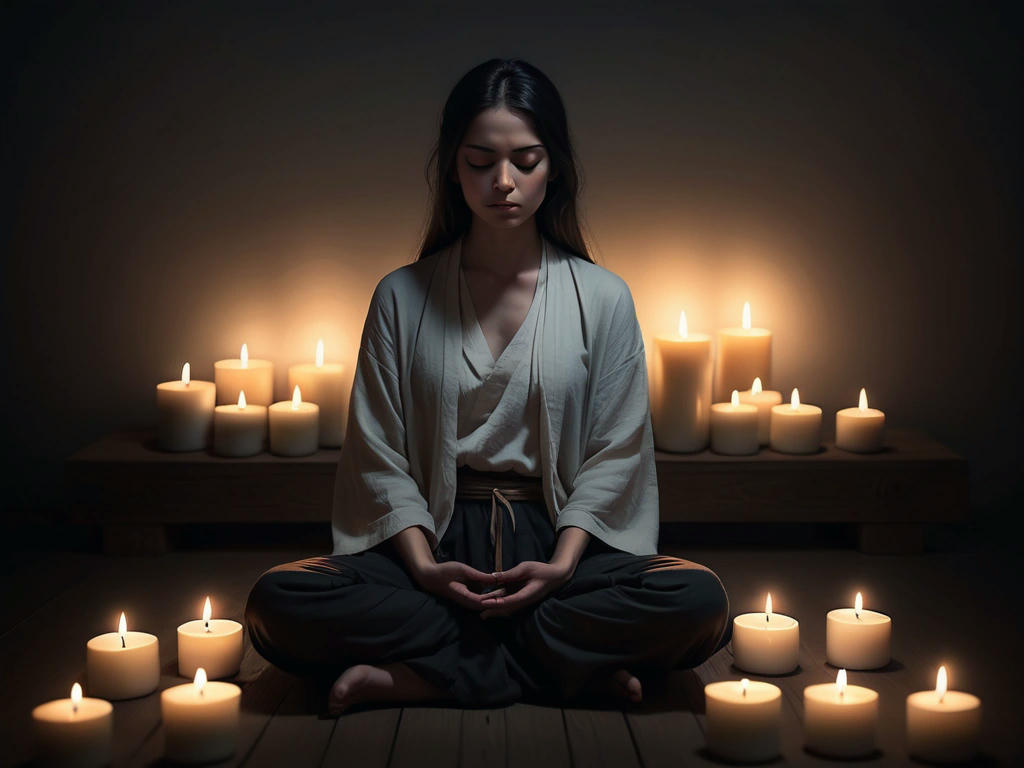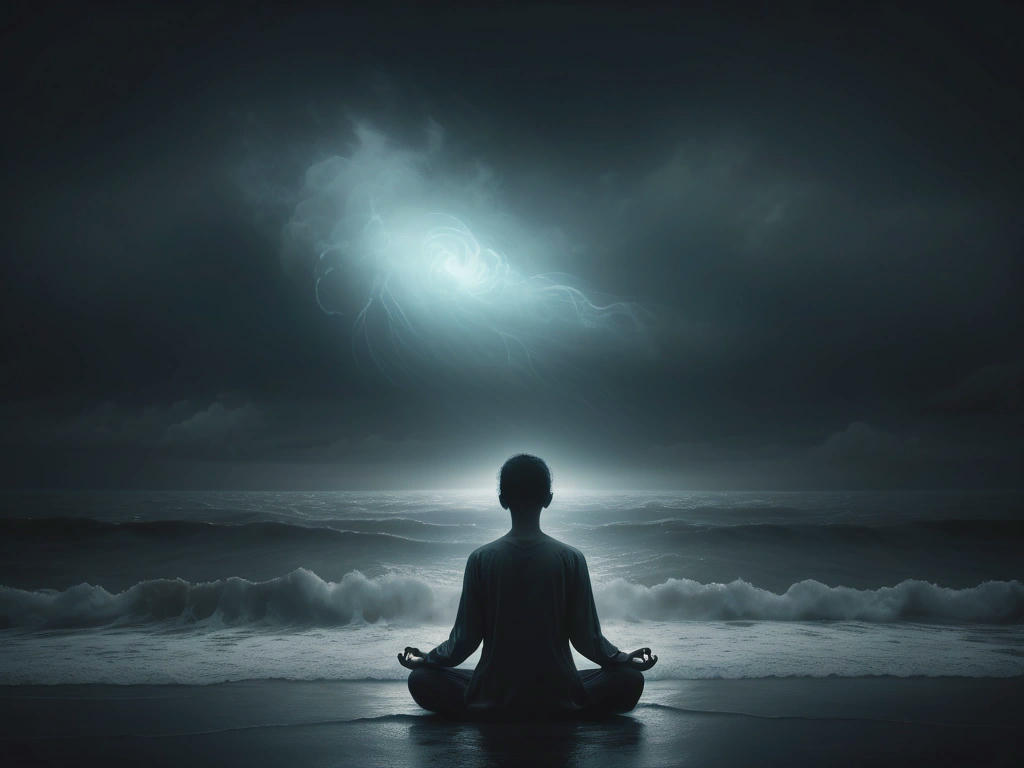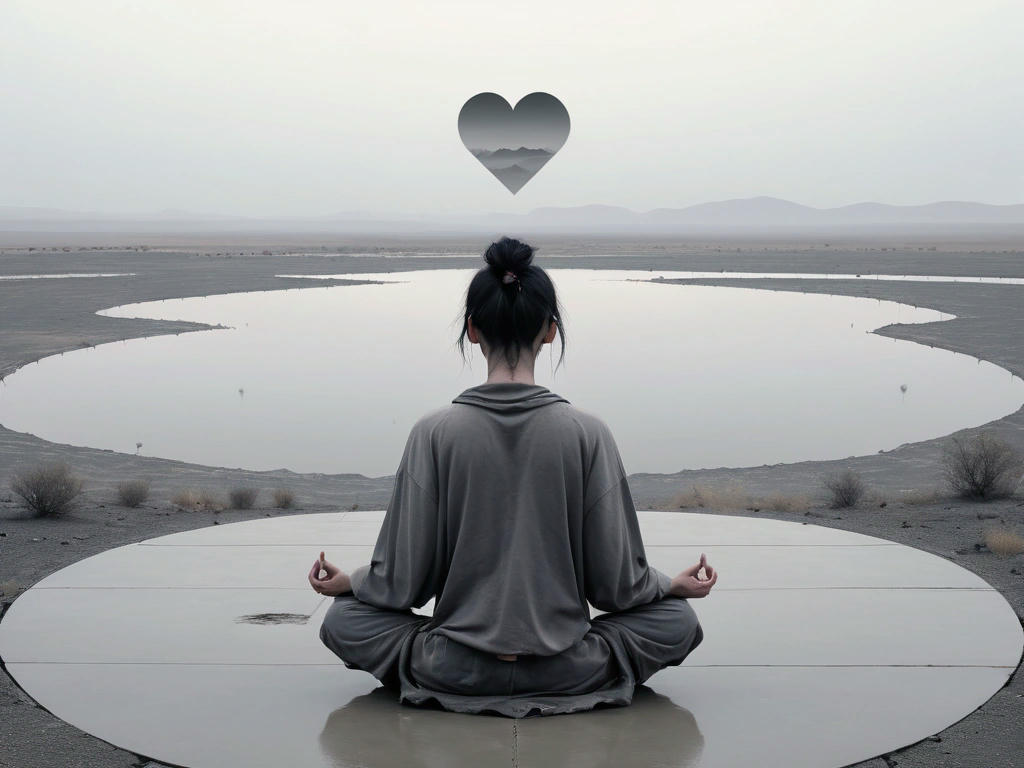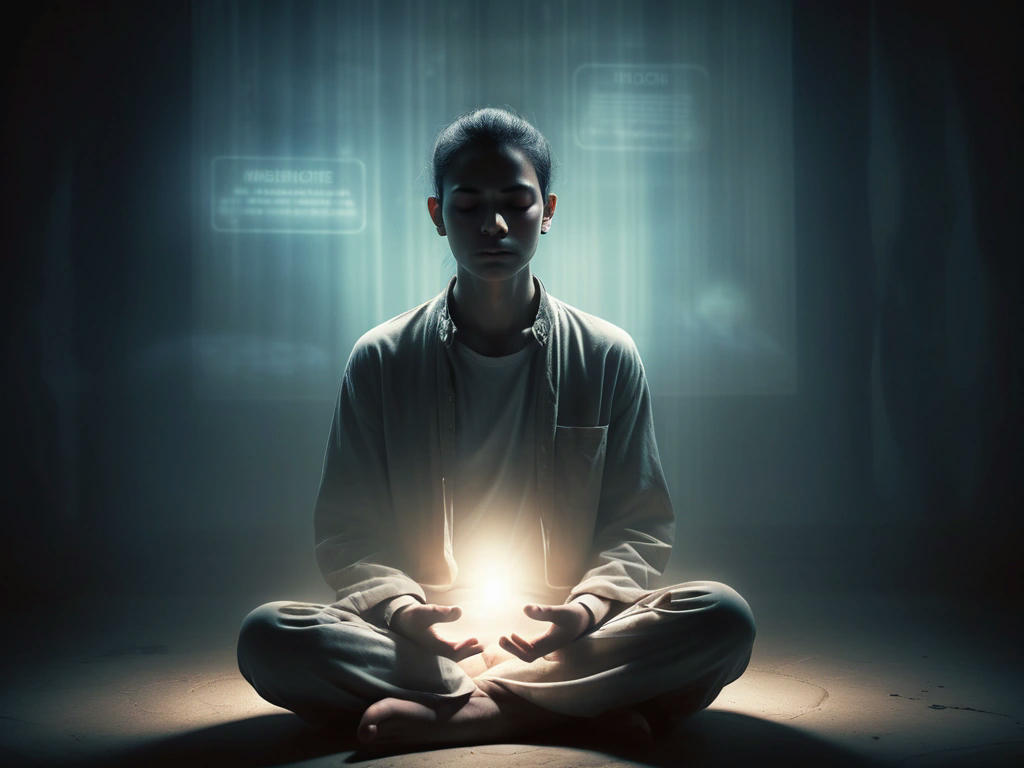In an era where wellness and self-care have become the ultimate badges of honor, meditation and mindfulness have emerged as the poster children of mental tranquility. We're often led to believe that these practices are the panacea for all our emotional and psychological woes. However, beneath the tranquil surface of mindfulness and meditation lies a dark underbelly that we dare not speak of.
The Uninvited Guests: Emotions and Trauma Meditation and mindfulness often promise a sense of emotional detachment, but what happens when the suppressed emotions and traumas resurface? The unprepared practitioner may find themselves overwhelmed by the very emotions they sought to escape. This can lead to a downward spiral of anxiety, depression, and even suicidal thoughts.
The Cult of Perfection The pursuit of mindfulness can quickly devolve into an unhealthy obsession with perfection. The pressure to achieve a state of constant calm and clarity can lead to feelings of inadequacy, self-doubt, and even shame. This cult of perfection can be particularly damaging for individuals who already struggle with self-acceptance.
The Guru Complex The meditation and mindfulness industry is ripe with charismatic gurus and self-proclaimed experts who prey on the vulnerable. These individuals often use their influence to manipulate and control, fostering a culture of blind obedience and dependency. The unsuspecting practitioner may find themselves trapped in a web of emotional manipulation, with their guru holding the reins.
The Dark Side of Detachment Detachment, a cornerstone of meditation and mindfulness, can quickly turn into emotional numbness. This detachment can lead to a lack of empathy, compassion, and emotional intelligence, causing individuals to become disconnected from the world around them.
The Unspoken Consequences The dark side of meditation and mindfulness is often swept under the rug, hidden from public view. However, it's essential to acknowledge these unspoken consequences to ensure that these practices are used responsibly and with caution.
In conclusion, while meditation and mindfulness can be powerful tools for mental well-being, it's crucial to approach them with a critical eye. By acknowledging the dark side of these practices, we can work towards creating a more balanced and responsible approach to mental health.





